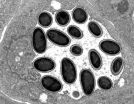Brand loyalty: What happens when our favorite products are unavailable?
2014-10-14
(Press-News.org) What would happen to all those millions of Snickers fans if their favorite chocolate bar was temporarily out of stock? Would they wait for it to be available again or would they quickly switch allegiance to Milky Way or Kit Kat? According to a new study in the Journal of Consumer Research, when you can't get your favorite product, you'll quickly forget about it if you can find a good replacement.
"We studied situations in which products are temporarily unavailable. We found that desire for a product depends on the amount of time that has passed since a consumer was able to consume the product and the availability of substitutes. Consumers desire a product more over time if substitutes are unavailable, but desire the product less if substitutes are available," write authors Xianchi Dai (CUHK Business School, Chinese University of Hong Kong), and Ayelet Fishbach (University of Chicago Booth School of Business).
Over five studies, the authors studied how much consumers missed, liked, or wanted to consume something they could not have. In one study, participants were asked to stop using Facebook for three consecutive days. During this time, they were allowed to use other social media platforms like WhatsApp.
Consumers who were allowed to use another social media platform wanted to use Facebook less by the third day. However, the opposite was true for consumers who did not use another social media platform and their desire to use Facebook was higher on the third day than at the beginning of the study.
In other words, how much a consumer desires a product is based on the length of time that passes before they can either find the original product or a suitable replacement to satisfy their craving. The authors note that the best time for brands to use persuasive messages such as "When was the last time you had a Snickers bar?" to increase cravings is when the craving is outside of the realm of a person's self-control.
However, a "limited supply" message ("While supplies last!") can also backfire if the consumer cannot find the product. "If a company restricted the supply of a product in a way that someone could not find the product at all, they would likely develop new tastes for a substitute product and desire the original product less over time," the authors conclude.
INFORMATION:
Xianchi Dai and Ayelet Fishbach. "How Nonconsumption Shapes Desire." Journal of Consumer Research: December 2014. For more information, contact Xianchi Dai (xdai@cuhk.edu.hk) or visit http://ejcr.org/.
ELSE PRESS RELEASES FROM THIS DATE:
2014-10-14
AUGUSTA, Ga. – One of the first-known oncogenes has a protein partner that helps breast cancer proliferate and when it's blocked, so is the cancer, scientists report.
The gene ErbB2, commonly called HER2, is highly expressed in about 25 percent of breast cancers. Scientists have now found the protein Erbin, thought to be an anti-tumor factor, also is highly expressed in these cancers and essential to ErbB2's support of breast cancer.
When scientists interfere with the interaction between the two in mice, it inhibits tumor development and the usual spread to the ...
2014-10-14
Imagine you're dining out with a friend who insists on sharing some chocolate cake for dessert. Since the decision has already been made for you, you gladly join in without feeling any regret. According to a new study in the Journal of Consumer Research, consumers are happier when someone else decides they can indulge in dessert or other guilty pleasures.
"Most of us don't like being forced to do things. The freedom to make our own decisions generally energizes us and increases our sense of well-being. However, when it comes to purchasing and consuming products normally ...
2014-10-14
Consumers worldwide associate France with fashion and luxury and are willing to pay a lot for French luxury products such as perfume and wine. But what about products made in countries with less favorable reputations? A new study in the Journal of Consumer Research shows that consumers won't judge a country's products by its reputation if the products are well-made.
"Positive feelings about a country don't always translate into more favorable opinions of its products. A positive opinion of a country may actually make consumers think more about whether or not the country ...
2014-10-14
October 14, 2014 –Adolescents whose parents better understand their daily experiences have better psychological adjustment, suggests a study in the October issue of Psychosomatic Medicine: Journal of Biobehavioral Medicine, the official journal of the American Psychosomatic Society. The journal is published by Lippincott Williams & Wilkins, a part of Wolters Kluwer Health.
Having parents who understand how their day went may even affect teens' cellular responses to stress—providing a possible link to improved physical health as well. "These results provide ...
2014-10-14
It might not be obvious on the scales, but healthy eating and increased physical activity from walking during pregnancy is directly associated with a range of improved outcomes at birth, according to researchers from the University of Adelaide.
Results of the world's biggest study of its kind – offering healthy eating and exercise advice to pregnant women who are overweight or obese – are published today in two papers in the journal BMC Medicine.
"While it might have been expected that healthier eating and increased physical activity during pregnancy would ...
2014-10-14
A Rice University study of tamper-resistant voting methods revealed that only 58 percent of ballots were successfully cast across three voting systems. The researchers concluded additional work is needed to make voting both secure and user-friendly.
The study, "Usability of Voter Verifiable, End-to-End Voting Systems: Baseline Data for Helios, Prêt à Voter and Scantegrity II," examined three new end-to-end voting systems – systems that give voters the option to both verify the system is working properly and to check that their votes have been recorded ...
2014-10-14
Extreme adaptations of species often cause such significant changes that their evolutionary history is difficult to reconstruct. Zoologists at the University of Basel in Switzerland have now discovered a new parasite species that represents the missing link between fungi and an extreme group of parasites. Researches are now able to understand for the first time the evolution of these parasites, causing disease in humans and animals. The study has been published in the latest issue of the scientific journal Proceedings of the National Academy of Sciences (PNAS).
Parasites ...
2014-10-14
Putnam Valley, NY. (Oct. 13, 2014) – Two studies recently published in Cell Transplantation reveal that cell transplantation may be an effective treatment for spinal cord injury (SCI), a major cause of disability and paralysis with no current restorative therapies.
Using laboratory rats modeled with SCI, researchers in Spain found in laboratory tests on cells harvested from rats - specifically ependymal progenitor cells (epSPCs), multipotent stem cells found in adult tissues surrounding the ependymal canal of the spinal cord - responded to a variety of compounds ...
2014-10-14
The dirt in your backyard may hold the key to isolating cancerous tumors and to potential new treatments for a host of cancers.
University of Iowa researchers have found a gene in a soil-dwelling amoeba that functions similarly to the main tumor-fighting gene found in humans, called PTEN.
When healthy, PTEN suppresses tumor growth in humans. But the gene is prone to mutate, allowing cancerous cells to multiply and form tumors. PTEN mutations are believed to be involved in 40 percent of breast cancer cases, up to 70 percent of prostate cancer cases, and nearly half of ...
2014-10-14
This news release is available in German. In order to invade healthy tissue, tumor cells must leave the actual tumor and enter the bloodstream or lymphatic system. For this purpose, they use certain enzymes, proteases that break down the tissue surrounding the tumor, thus opening the way for tumor cells to reach blood or lymphatic vessels. To keep the proteases in check, the body produces inhibitors such as the protein TIMP-1, which thwart the proteases in their work.
But during development of metastases, the control function of this inhibitor appears not only to ...
LAST 30 PRESS RELEASES:
[Press-News.org] Brand loyalty: What happens when our favorite products are unavailable?


